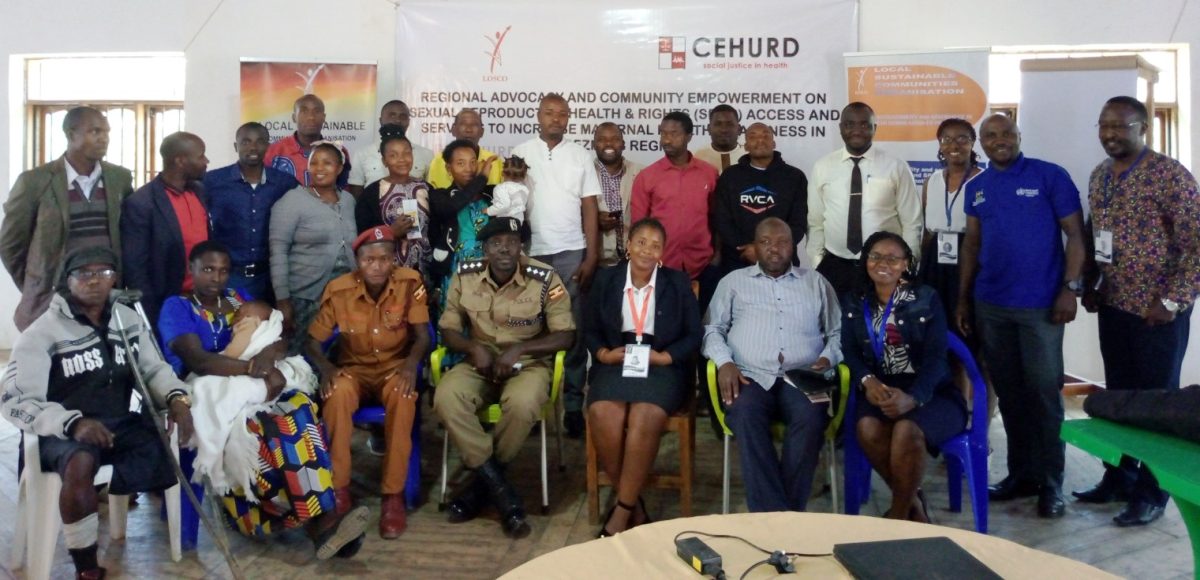
- August 31, 2023
- LOSCO
- 0 Comments
- Blog, News, Uncategorized
SEXUAL REPRODUCTIVE HEALTH & RIGHTS (SRHR) ACCESS AND SERVICES BEST WAY TO INCREASE MATERNAL HEALTH IN KIGEZI SUB REGION
1.0. Introduction about the Partnership
Local Sustainable Communities Organisation (LOSCO) is a not-for- profit Non- Governmental Organisation that was initiated by a group of Human Rights Defenders, Social Workers, Women Leaders, and Local Community Development Workers to bring about practical inclusive development through promoting inclusive policies and practices. LOSCO in Partnership with Centre for Health Human Rights and Development (CEHURD) organized a Breakfast Meeting among other activities to provide a platform for Community Empowerment on Sexual Reproductive Health and Rights Access and Services to increase Maternal Health Awareness in the Region Rubanda District specifically.
2.0. Background.
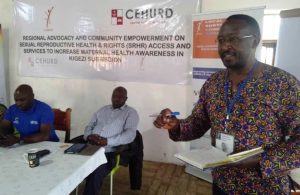 ED LOSCO Giving Opening Remarks and Situational Analysis
ED LOSCO Giving Opening Remarks and Situational Analysis
In Feb 2017, a defining moment in the structuring of the LOSCO was the establishment of the Working Group composed of representative members from the marginalized groups. Since the original initiative, LOSCO has evolved into a legally registered Non-governmental organization with a mandate “To facilitate stable and sustainable community development” in the whole country with her Offices in Kabale Municipality – Kigezi Sub Region Greetings, Local Sustainable Communities Organisation (LOSCO) is a not-for- profit Non- Governmental Organisation that was initiated by a group of Human Rights Defenders, Social Workers, Women Leaders, and Local Community Development Workers to bring about practical inclusive development through promoting inclusive policies and practices.
LOSCO has since 2019 been involved in Policy Advocacy and Social accountability and Governance Health to promote the Right to Health which is SDG 3, and has played a big Advocacy role in Community empowerment and awareness on SRHR handling a wide range of social Justice Issues. Women land ownership, sexuality education, gender-based violence, taking the lead in Kigezi sub region, which continue to constitute a serious social welfare issues, human rights, and social equity issue that affects millions of women and girls in sub – Saharan Africa.
The Theme for this Meeting was to “Increasing Capacity and Access to SRHR and Maternal Health in Kigezi”
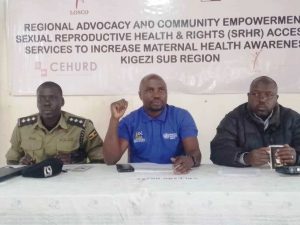 The purpose of this campaign is to generate consensus on SRHR, Maternal Health and Human Rights between duty bearers and rights holders with a view of increasing knowledge and accessibility to the quality of Health Service Delivery and also strike a balance between SRHR, Maternal Health and Human Rights in a bid to foster development. The Problem in focus is multifaceted in a way that Human Rights form part of the SRHR Accessibility and Services. Sexual and Reproductive Health entails Safe Motherhood; Family Planning; Adolescent Health; Prevention and Management of Adolescent Ill-health; prevention and management of unsafe abortion, RH tract infections including STI/HIV/AIDS, infertility, reproductive organ cancers; menopause and andropause, obstetric fistulae, gender issues (gender based violence and female genital mutilation). Repeatedly there are challenges for different categories of people that have had issues accessing the services and neglected in the process thus their rights abused by duty bearers. The 2016 Demographic survey indicates that Rubanda District has 16% rate of teenage pregnancies. The Human Rights Based approach was considered to bring out and contribute to the reduction of these issues. People with physical disabilities (PWPDs) face health facility-related (service provider and facility-related challenges) economic and societal challenges in accessing SRH services and rural risk mothers are also faced with accessibility limitations.
The purpose of this campaign is to generate consensus on SRHR, Maternal Health and Human Rights between duty bearers and rights holders with a view of increasing knowledge and accessibility to the quality of Health Service Delivery and also strike a balance between SRHR, Maternal Health and Human Rights in a bid to foster development. The Problem in focus is multifaceted in a way that Human Rights form part of the SRHR Accessibility and Services. Sexual and Reproductive Health entails Safe Motherhood; Family Planning; Adolescent Health; Prevention and Management of Adolescent Ill-health; prevention and management of unsafe abortion, RH tract infections including STI/HIV/AIDS, infertility, reproductive organ cancers; menopause and andropause, obstetric fistulae, gender issues (gender based violence and female genital mutilation). Repeatedly there are challenges for different categories of people that have had issues accessing the services and neglected in the process thus their rights abused by duty bearers. The 2016 Demographic survey indicates that Rubanda District has 16% rate of teenage pregnancies. The Human Rights Based approach was considered to bring out and contribute to the reduction of these issues. People with physical disabilities (PWPDs) face health facility-related (service provider and facility-related challenges) economic and societal challenges in accessing SRH services and rural risk mothers are also faced with accessibility limitations.
2.1. Breakfast Meeting goal
The Goal for the meeting was to address the specific Rubanda context of the campaign main goal which was; “To Increase Accessibility to Sexual Reproductive Health & Rights (SRHR) and Maternal Health Services through Empowering Communities to demand for their Human Rights in Kigezi Sub Region”.
2.3. Meeting objectives
- To build capacity for Health Service Providers and Duty Bearers in Sexual Reproductive Health & Rights (SRHR) services for all through community mobilisation in Rubanda District – Kigezi Sub Region.
- To raise awareness on Maternal Health and governance processes in Health for Rubanda District.
3.0. Achievements
Equal participation it was a multi-dimensional engagement. Rubanda District, target population is multi-Dimensional and nobody was left behind including District key stakeholders, healthy teams, the service providers, women and young girls, men and boys, prisons, police, politicians, teachers, peers, Voluntary Health workers. [1]
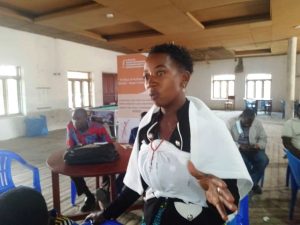
Peer Leader making a Comment on the challenges
The intended objective of the meeting organized by CEHURD and LOSCO was to a large extend achieved as capacity building was made especially to the leaders and committed to taking the information back to their areas of operation for impact and change creation.
Gaps sabotaging sexual reproductive healthy rights were identified by the service recipients, service providers, leaders and recommendations for improvement were drawn to. This was willingly shared by the participants themselves and hoped there would be a concerted way forward on the same urging LOSCO to intervene as partners in the District
4.0. Challenges
Some officials came late and time was not enough to discuss all issues. This seems to be a cross cutting issue in the area as some that came an hour after the scheduled time were seemingly unapologetic.
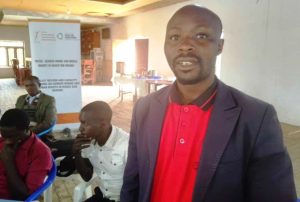 ED KADOLHA Making a Comment on Batwa Situation
ED KADOLHA Making a Comment on Batwa Situation
Restricted number of attendance due to limited resources which would have brought out a wide range of ideas and far reaching recommendations.
Some intended participants delegated their subordinates which challenges decision making on their part in cases where information is not adequately shared.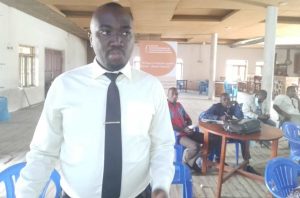
5.0. Lessons learnt
Through the engagement and subsequent discussions, LOSCO learnt that the District is faced with more challenges than solutions and Leaders are willing to take responsibility if they are equipped with adequate resources to handle the cases identified as they arise.
- Early marriages girls are marrying as early as 13 years of age and among the Batwa is at 8 years limiting Justice and Support to the young girls that especially fueled by their parents who want bride price and compensation thus marrying them off. Forced marriages are facilitated in the process by parents that lack responsibility. Some Young/ Teenage Mothers are carrying their relative’s children and others are a result of defilement.
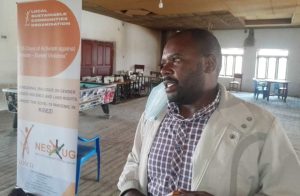
- Rugged terrain due to the nature of the geographical location. This makes access to SRHR and Maternal Health very challenging as it involves climbing high hills and poor access roads. Poor infrastructures where roads are impassable and more so during the rainy season. Many places are Hard to reach in the region.
- Poverty is rampant in the area with limited income sources that make it hard especially for transportation as the means and ways to access the specialised services are a challenge and limited in the region.
- Corruption in health centers where the rich tend to be favoured because of their financial capability to bribe the Health Workers on some services.
- Rampant Defilement cases in the region are more responsible for school drop outs as teenage pregnancies tend to be resultant that is still a huge Mountain in the District.
- Drug abuse “a school going child of primary four class was found talking alcohol with a boyfriend“ and other young girls have as many as three boyfriends that limits their education focus and eventually the results are that they will drop from school.
- Inaccessibility of antenatal care due limited knowledge among the rural women and the marginalized Batwa community are severely affected by this issue because of their educational backgrounds causing stigma that are less supported even in Government programs.
- Still births due to lack of ambulances in the district to save pregnant mothers in emergency cases.
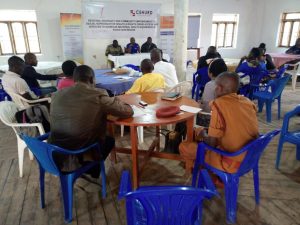
- Limited attention to the Marginalised Batwa communities in as far as Maternal Health who still believe in their culture of using herbs which puts them at a risk of dying and their unborn children.
- Gender based violence is another issue that was learned from the discussions as men tend to repeatedly batter their wives and vice versa impacting the need for services as well as accessibility. This also delays care and access to services and causes high mortality rates in the district.
- Low attendance of antenatal health care services due long distances and some services are limited and costly like the Ultra sound machines; the whole district has 2 ultra-scan machines out of 39 health facilities in the district with a radius of 40km.[2] In other cases it’s a result of limited awareness of the services offered.
- Low viral load suppression among the youth and adolescents fueled by stigma. This also affects their zeal to reach out for the SRH & Maternal services.
- Inadequate human resource for example Bufundi HCIII, 33% of expecting mothers are attended by one midwife (the government is still operating on old HR recruitment guidelines which should be revised)
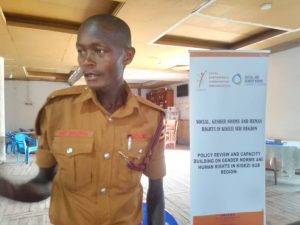
- Limited space for waiting pregnant mothers are due, no space at the Health Units and this is not about to be attended to.
- Challenges with referral for specialized services for example to Kabale, and Mbarara one ambulance cannot rescue all the emergency cases in 39 health facilities in Rubanda district[3] [4].
- Limited School Health programs are also a contributory factor to the high rates of school dropouts affecting Education in the district.
- There exists unprofessional counselors in the district at some Health units that mishandle the clients causing fear and resentment to the services.
7.0. Next Steps Recommendations
- Advocating for sex education in schools to empower both girls and boys the benefits of staying at school and the dangers of engaging themselves in sex acts at early stage.
- Psycho social support is needed to give hope to the young girls who are psychologically torched.
- Awareness creation at the grassroots about human rights violations among the young girls and women and where to run too for support.
- Advocating for more human resource in health facilities. The government is still operating on old HR recruitment guidelines which should be revised.
- Legal attention to the cases reported at police. The Process is still very slow and corrupt mostly where the culprits / Suspects are released on bond and never followed up causing more havoc in the rural areas.
- Team work and collaboration with other key players to create curb the above habits in our communities. This may start with strengthening the management teams at the Health Units to curb cases of corruption and segregation among the clients.
- The Stakeholders request the Ministry and Parliament to introduce Health Insurance so that the poor can also access specialised Health Services.
- Design Programs in partnership to meet with the Parents and pupils in schools on Human Rights for all and Cascade the information to rural areas that are unaware of the importance of education to reduce the impact of school dropouts and teenage pregnancies. This would also improve on the issue of school health.
- The limited preconception care needs to be brought to the attention all stakeholders emphasizing the importance.
- The need to engage in charges on corruption cases that exist in some care centres also making use of the Health Management committees.
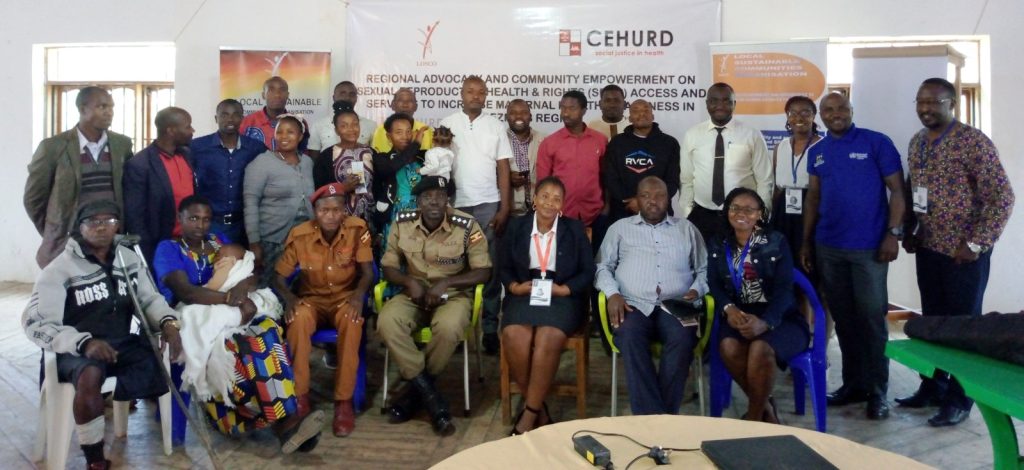
- There is need for consistent community sensitisation on maternal responses.
- The Government is tasked to improve the road network to ease the accessibility question and reduce the maternal deaths.
- There is much need to emphasize Male involvement in SRHR issues because they are the gatekeepers.
- Continue to observe Rights in Health Centers especially the patient rights.
- The urgent need to increase community policing because the high rates of Domestic Violence in communities which affect productivity and family Health, Education among others.
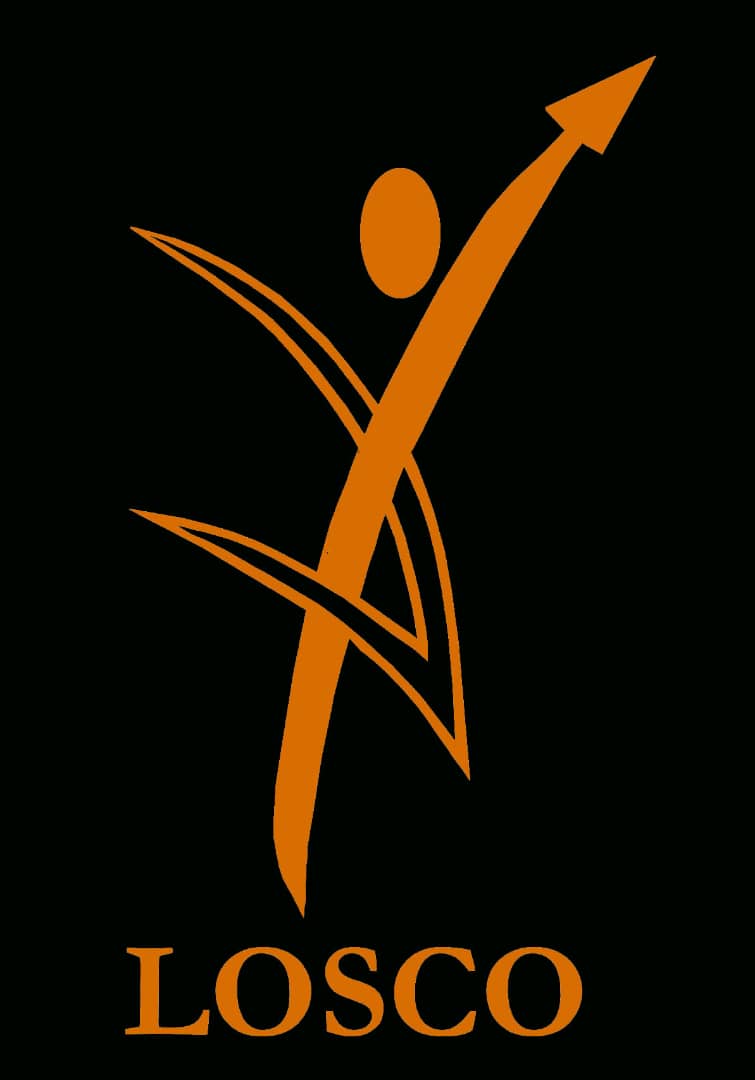

Leave a Comment
You must be logged in to post a comment.